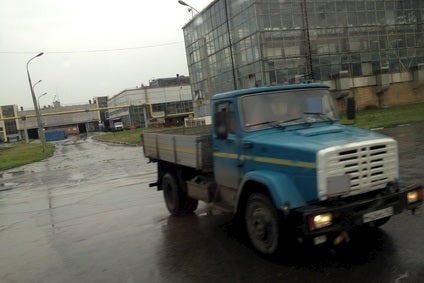
One Russian analyst says Moscow is actively involved in attempting to boost its automotive industry as the latest figures show sales falling 25% last month.
The country extended its recycling scheme aiming to boost sales past its initial New Year’s Eve deadline, which prompted a modest spike in December, but numbers have since dropped back to the gloomy downward spiral witnessed in 2014.

Discover B2B Marketing That Performs
Combine business intelligence and editorial excellence to reach engaged professionals across 36 leading media platforms.
However – as well as the scrappage scheme – so widely employed in the West during the darkest days of the 2009 economic crisis – E&Y CIS Automotive Group Head Andrey Tomyshev notes Russia may well mull more financial incentives to kick-start moribund sales – although this could be limited to commercial vehicles rather than personal transportation.
“Of course they [Russian government] pay attention to the automotive sector,” Tomyshev told just-auto from Moscow. “They already launched programme [recycling] and are considering introducing interest subsidies. It is being discussed when it is going to be launched.
“You have to understand, seeing such a decrease in real disposable income of the population, there will be a change in the market structure and demand structure.
“The share of budget cars in retail will grow. AvtoVAZ and other Russian producers will probably win because they will have more opportunities not to increase prices, compared to factories which are less localised and more dependent on currency fluctuations.
“I think it will be an upturn, not in sales, but in market share for AvtoVAZ, GAZ and Sollers.”
The E&Y analyst also pointed to a cocktail of influences all bearing down on the Russian economy at the moment, such as the effects of sanctions, politics, capital outflow and “other external factors,” such as the recent dramatic fall in oil prices.
“It [market] will depend on the dynamics of the oil price and there is a great range in the oil forecast,” said Tomyshev. “Some forecast it could drop to US$20 per barrel, some it could return to its average, historical level of US$70-US$80. Nobody know what is going to happen.
“I think economic factors are having the stronger impact on the Russian economy, [rather] than other political issues,” said Tomyshev, who outlined a further measure The Kremlin could take to boost the market, although there is no suggestion it is being actively discussed at present.
“Initiatives in the long term could be an introduction of the maximum life of cars,” he noted. “Cars [in Russia] are quite old – the average age is 12 years.
“It [recycling] can boost the scrappage of old cars, boost the demand for new cars.
Russia’s recycling extension is due to last between a further three and six months.






